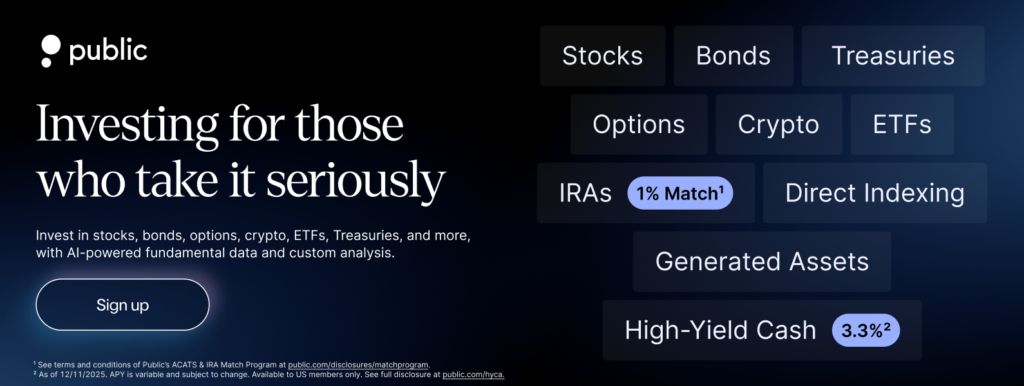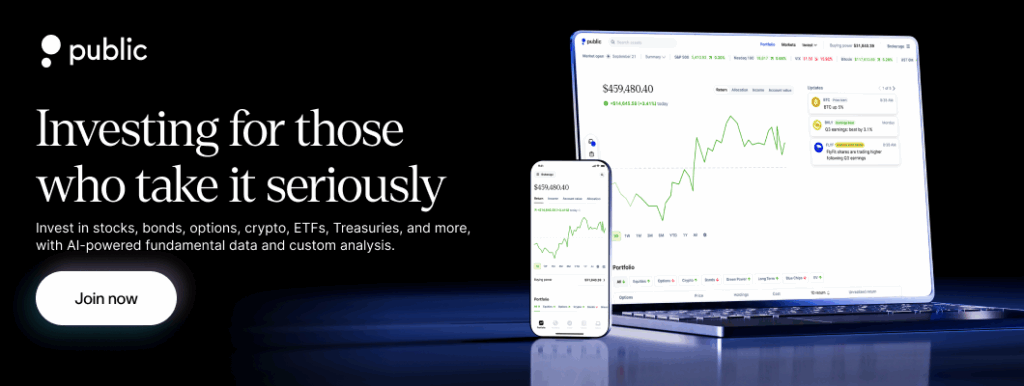If you’re exploring ways to add income potential to your portfolio, high-dividend stocks may be worth learning about. These stocks are known for distributing a portion of a company’s earnings to shareholders, which can contribute to a portfolio’s income stream.
As a U.S. investor, understanding how to identify high-dividend stocks, interpret their financial fundamentals, and explore investment options may give you useful context.
This guide offers an overview of some well-known high-dividend stocks as of April 2025, along with practical insights that may help you better understand this area of the market.
What are dividend stocks?
Dividend stocks are those that regularly distribute a portion of the company’s profits to investors. In the United States, some dividend-paying companies may increase, decrease, or stop paying their dividends. In contrast, some dividend stocks pay a relatively consistent amount to investors every quarter, allowing investors to establish a cash flow similar to an annuity.
It is generally observed that companies that offer dividends are often well-established, indicating long-term stability for the company.
You can calculate the dividend yield of a stock by dividing the annual dividend payment by the current share price. For example, if a stock pays $5 per year in dividends and is trading at $100, the dividend yield is 5%.
Why invest in dividend stocks?
There are a few potential benefits why investors may choose to invest in dividend stocks. A few of them are as follows.
- Passive income potential: Dividend-paying stocks may offer you a stream of income over time, which some investors find helpful in retirement or when seeking to supplement other income sources.
- Stability in certain markets: Companies that pay dividends are often more established, which may contribute to a sense of consistency in your portfolio during periods of market volatility.
- Portfolio diversification: Including dividend stocks in your portfolio might help you spread risk across different types of investments.
- Long-term growth opportunities: In addition to receiving dividend payments, you may also benefit from a company’s stock price increasing over time.
- Inflation consideration: Some companies choose to raise their dividend payouts, which could help offset the effects of inflation on your purchasing power.
How to invest in high-dividend stocks on Public.com?
To buy high dividend paying stocks, you can follow the simple steps below:
1. Sign up for a brokerage account on Public
You can sign up for an account on our website or download the Public app from the App Store (iOS) or Google Play Store (Android).
2. Add funds to your Public account
Once your account is set up and verified, you’ll need to deposit funds. You can link your bank account and transfer money into your Public account. Make sure to check for any minimum deposit requirements.
There are multiple ways to fund your Public account—from linking a bank account to making a deposit with a debit card or wire transfer.
3. Search for your preferred stock
Use the search bar to find your preferred stocks. Click on the stock to view its details. This includes the current price, historical performance, and relevant news or analysis.
4. Buy the stock
Once you’ve decided to purchase a stock, click on the “Buy” button. You’ll be prompted to enter the amount you want to invest or the number of shares you wish to buy.
Choose the number of shares you want to buy.
Select the type of order:
- Market order: Here you can execute the trade at the current market price.
- Limit order: This allows you to set a price at which you want to buy.
5. Review and confirm your purchase
After entering your purchase details, review your order to ensure everything is correct. Check the total cost, including any fees, if applicable.
If everything looks good, confirm your purchase. You should receive a notification confirming your order. Your shares will be added to your portfolio once the trade is executed.
6. Monitor your investment in one place on Public.com
After purchasing, you can monitor your investment on Public.com. You can also track your portfolio’s performance and stay updated on market news.
What are the potential risks of investing in Dividend stocks?
Some potential risks of investing in dividend stocks include
Dividend changes: Companies may reduce or suspend dividend payments due to financial challenges, economic conditions, or business decisions. This may affect the income you receive from those investments.
Market volatility: Like all stocks, dividend-paying shares can experience price swings in response to market conditions, which may impact your portfolio’s short-term value.
Interest rate sensitivity: Rising interest rates might shift investor attention toward alternatives that offer higher yields, which can lead to price declines in dividend-focused stocks.
Industry-related risks: Some sectors—such as energy, utilities, or telecommunications—may be more vulnerable to regulatory changes or commodity price shifts, which could impact dividend payouts.
Company-specific factors: If a company’s financial performance weakens, such as through reduced revenue or shrinking margins, this could influence its ability to maintain dividend payments or support its stock price.
Conclusion
In summary, dividend-paying stocks may offer a way to generate income through regular payouts while also allowing you to stay invested in companies over the long term. They can contribute to diversification and may offer a sense of stability, though like any investment, they come with risks—including changes in dividend payments, market fluctuations, and company or industry-specific challenges.
At Public, we believe that investing should be accessible and easy for everyone. That’s why we offer a user-friendly platform that allows you to buy and sell stocks, ETFs, Treasuries, crypto, and IRA—all in one place. Sign up today and continue your journey toward your financial goal.


